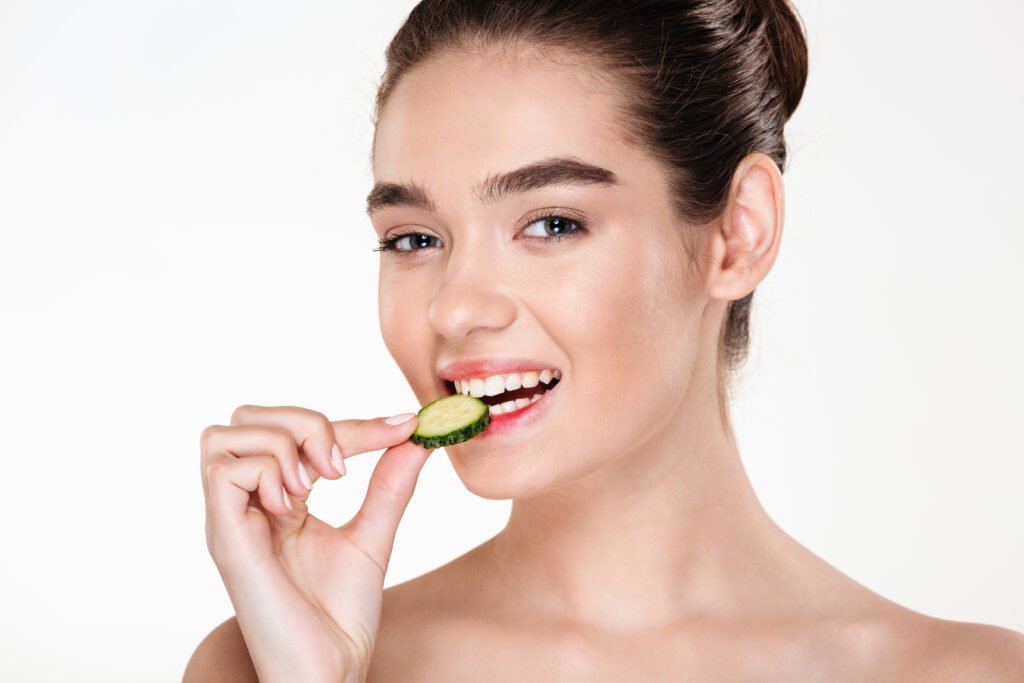
Introduction:Diet and Acne
Diet and Acne for a very long time, people have been trying to get bright, healthy skin. For instance, the Egyptians used olive oil to keep their skin fresh, and people today are interested in more modern laser treatments. However, the effect of food on acne is an area of face care that has become more and more popular over the years. With millions of people affected around the world, acne isn’t just about what you put on your face; it’s also about what you eat. This in-depth guide looks at how your food might be the key to getting the beautiful skin you’ve always wanted.
Table of Contents
Understanding Acne
Acne is a skin disease with many causes, such as pimples, blackheads, or lumps in the neck, chest, and back. It is caused by extra oil production, clogged hair follicles, germs, and changes in hormone levels, among other things. Fewer people know that food can significantly affect these factors and, as a result, the presence and intensity of acne.
Causes of Acne
Hormonal changes:Particularly in teenagers and women, fluctuations in androgen levels can lead to increased oil production, which in turn can contribute to acne flare-ups.
Bacterial growth: P. acnes bacteria in the hair follicles and excessive oil can lead to inflammation and swelling, often manifesting as acne.
Excess sebum production: The natural oil of the skin, sebum, can be overproduced, leading to clogged pores and acne.
Inflammation: Inflammatory responses in the body have been linked to the development and persistence of acne.
Exploring the Multifaceted Causes of Acne

This face problem, acne, affects millions of people around the world. Despite how common acne is, the exact reasons aren’t always clear and are often more than one thing. Discovering the causes of acne, ranging from hormonal changes to food factors, is essential for developing a suitable treatment plan.
This complete guide will examine the complicated web of reasons why acne happens. In addition to discussing the basics of acne, we’ll discuss how nutrition, lifestyle, and natural methods can affect its growth. Our guide is meant to help everyone with acne, whether you’re a long-time user looking for new ideas or a health buff interested in how acne works on a deeper level.
Types of Acne
The causes and solutions for each type of acne are different. Consider blackheads, which happen when oil and skin cells clog open pores and turn black when exposed to air. In contrast, whiteheads happen when pores close up, and dirt and oil get trapped under the skin.
Contributing Factors
Several known factors can make acne worse. The leading causes are the overproduction of oil (sebum) in the skin, uneven shedding of dead skin cells and germs, and too much hormonal activity. Hormonal changes can make your body make more sebum, and bacteria, especially Propionibacterium acnes, are a big reason why your acne spots get red and swollen.
Nutritional Impact on Acne
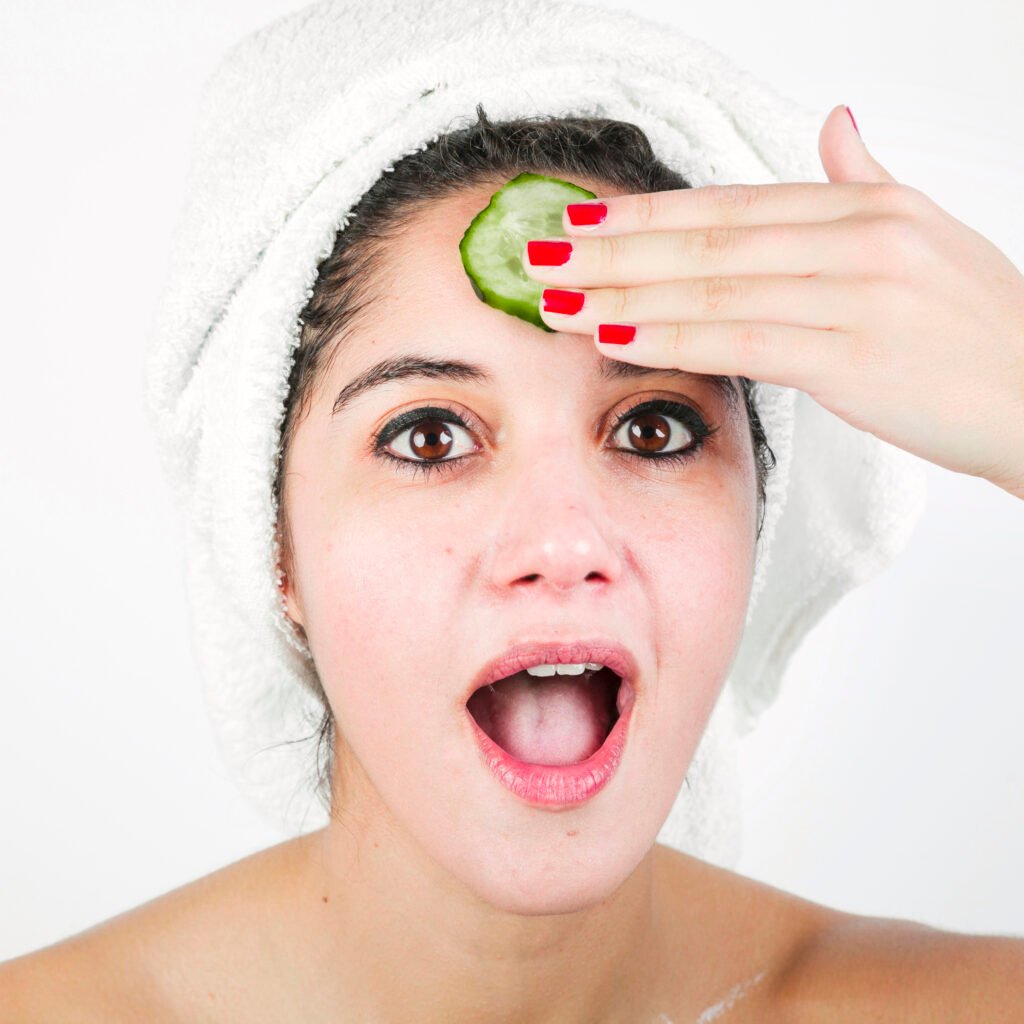
The link between what you eat and pimples is complicated and often debated. Studies have shown that certain nutrients and eating habits may affect how acne appears and how bad it is.
The Role of Diet in Acne Formation
Yogurt and other dairy products high in the glycemic index have been linked to acne. Rising insulin and blood sugar levels can happen from the first one. This may make your skin more greased and clog your pores. Some hormones and chemical compounds in dairy, especially skimmed milk, may worsen acne.
Foods That May Exacerbate or Alleviate Acne
Researchers have found that eating many whole foods, lean meats, fruits, and vegetables may also help pimples. Flavored foods high in omega-3 fatty acids may also help with acne because they lower inflammation. Different foods can affect other people differently, so you might have to try many other foods until you find the ones that make your acne worse.
Lifestyle Factors and Acne
Being stressed out and making some lifestyle choices can have a big effect on acne. Cortisol can be released when you’re stressed, which can make your face produce more grease and become inflamed.
Stress and Hormonal Influences
Long-term worry may also make it take longer for acne spots to heal. Teenagers and women often have problems with their hormones, which can make acne even worse. For instance, polycystic ovary syndrome (PCOS) causes high amounts of androgens, which can make the skin produce more sebum and clog pores.
Skincare Habits and Their Impact
Using complex skin care products or washing your face too much can worsen acne, making your skin dry and possibly producing more oil to compensate. Acne-prone skin can benefit from natural, non-comedogenic products, a gentle washing routine, and frequent scrubbing to keep dead skin cells from building up.
Holistic Approaches to Managing Acne
It may take more than one thing to eliminate acne’s causes. To treat acne successfully, holistic methods examine how diet, lifestyle, and traditional treatments work together.
Integrating Nutrition, Lifestyle Changes, and Skincare
One good way to deal with acne might be to change your diet, learn how to handle stress and create a skincare routine. Rest, eat well, and drink lots of water for best results. This is good for your face and will make your language proficiency look great. Also, wash your face twice a day and remove your makeup every night.
Natural Remedies and Holistic Treatments
Aloe vera, green tea extract, and tea tree oil are all-natural remedies that help fight germs and ease pain. Some different ways to treat acne are becoming more popular. These include acupuncture, massage, and plant medicine. Before starting new treatments, talking to a nurse or doctor is essential. They might change how other meds work.
Lastly, acne is a problematic condition whose causes can be changed by what you eat, how you live, and how stressed you are. If you learn about these things and take a more thorough approach, you can control and even lessen the effects of acne on your life. Working with a doctor or other health care worker would be best to get the best treatment for your acne. You may get a clearer complexion if you are patient and try a few different things.
Impact of Diet on Skin Health
More and more evidence suggests that eating right can make acne worse. Eating a lot of prepared foods that are high in sugar and bad fats can make you more likely to get acne. People with acne, on the other hand, have been linked to diets that are high in whole foods, especially those that reduce inflammation.
Foods that Influence Acne
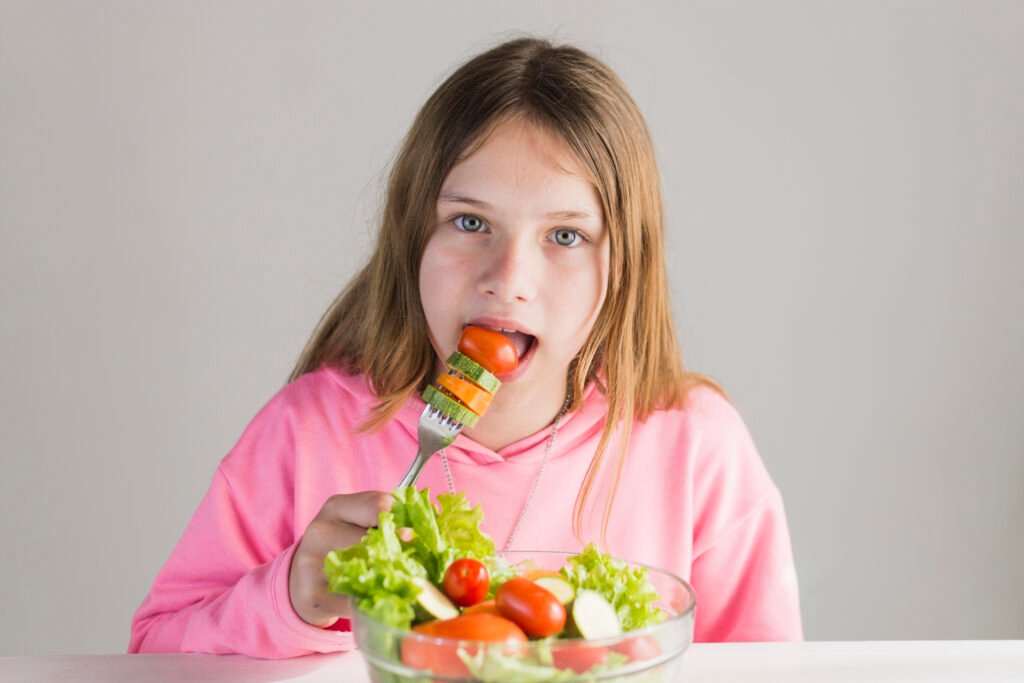
Your dietary choices play a pivotal role in the health of your skin. Here are some food groups to consider when aiming for clearer skin.
High-Glycemic Foods
An insulin spike happens when you eat or drink something high in glycemic index, like white bread, sugary snacks, or soft drinks. When this happens, oil glands may have to work harder to make more sebum, an oil that can clog pores and cause acne.
Dairy Products
Sure, researchers have discovered a link between pimples and drinking dairy products, especially skim milk. Hormones in dairy products can cause insulin-like growth factor 1 (IGF-1) levels to rise, which may affect acne progression.
Processed Foods
People who eat many prepared foods and foods containing undesirable fats can develop inflammatory conditions, worsening acne. Certain foods, like fast food, sweets, and goods that contain trans fats, fall into this group.
Omega-6 Fatty Acids
People in the West usually eat foods like sunflower and maize oils high in omega-6 fatty acids. A lack of omega-3 fatty acids can cause more inflammation, which is linked to acne. For good health, omega-6 fatty acids are very important.
Nutritional Approaches to Combat Acne
The good news is that you can combat acne from the inside out by modifying your diet. Here are some nutritional strategies to consider.
Anti-inflammatory Diet
Whole, nutrient-dense foods like fruits and vegetables, whole grains, lean meats, and nutritious fats (like the ones found in the oils of olives and avocados) are what make up an anti-inflammatory diet, similar to the Mediterranean diet. The general inflammatory reaction in the body can be lowered by these foods, which could render acne less severe.
Foods Rich in Antioxidants and Vitamins
Consuming foods rich in antioxidants — such as green tea, dark chocolate, and various fruits and vegetables — can help combat the oxidative stress contributing to acne. Vitamin A, commonly found in sweet potatoes and spinach, is known for its skin-healing properties.
Importance of Hydration
Staying hydrated is crucial for overall skin health. Water helps flush toxins from the body and regulates oil production, essential for maintaining clear skin.
Holistic Strategies for Healthy Skin
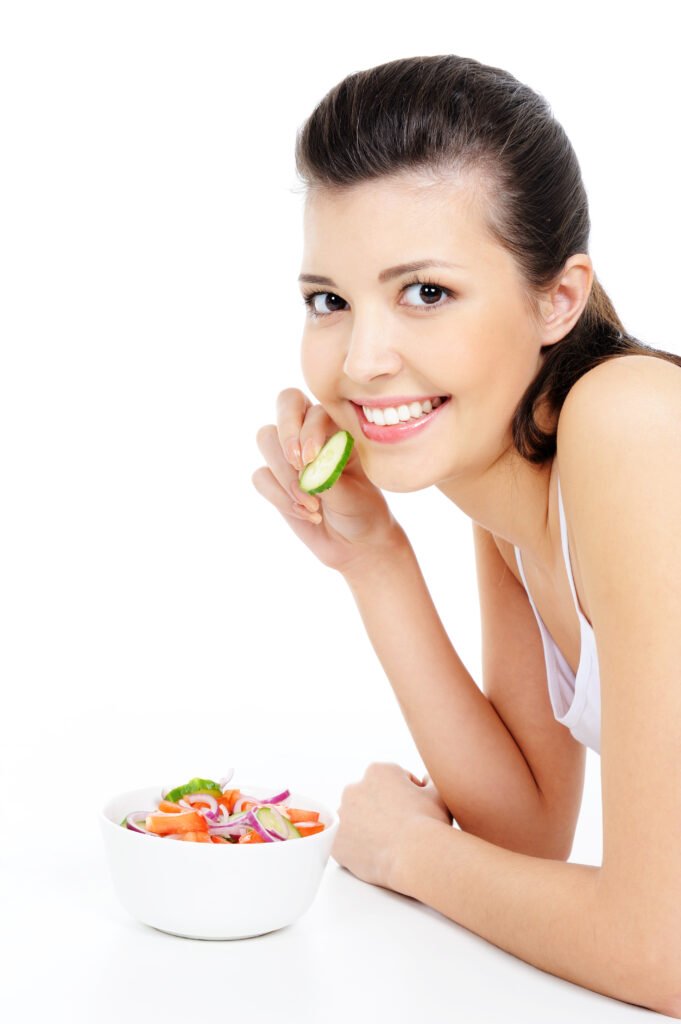
In addition to dietary adjustments, incorporating holistic health practices into your daily routine can further enhance the health and appearance of your skin.
Stress Management
Stress can increase cortisol production, a hormone that influences sebum production and may exacerbate acne. Meditation, yoga, and hobbies can be effective stress-management tools.
Regular Exercise
Physical activity can improve blood flow and deliver more oxygen to the skin, helping to maintain healthy skin. Be mindful of sweat and its potential to aggravate acne, and after exercise, cleanse the skin gently to remove sweat and debris.
Skincare Routine Tips
While not directly tied to diet, a good skincare routine is integral to skin health. This includes using products suitable for your skin type, cleansing regularly, and protecting your skin from the sun’s harmful rays.
FAQs

Q: Can specific vitamins and supplements help with acne?
A: Some nutrients have been shown to help with acne. People say that vitamin D, zinc, and bacteria can help keep your skin healthy. But it’s very important to talk to a doctor or nurse before adding any vitamins to your routine.
Q: Are there diets that can specifically worsen acne?
A: Diets high in sugars, processed foods, and unhealthy fats are more likely to exacerbate acne due to their potential to raise inflammation and increase sebum production. They can spike insulin levels and potentially wreak havoc on skin health.
Q: Can drinking alcohol worsen acne?
A: Alcohol can worsen acne in several ways. It can dehydrate the skin, leading to increased oil production and disrupting the gut microbiome, potentially leading to more inflammation and acne flare-ups.
Conclusion
It’s getting clearer that food and acne are linked. Consuming certain foods can greatly affect whether or not you’re given acne and how bad it is. To get clearer, better skin, you can choose nutritious foods, drink enough water, eat foods that lessen inflammation, and manage your symptoms as an entire body.
Remember that there is more than one way to treat pimples. Because every person is different, what you eat, how you take care of your skin, and how you live your life may need to change if you want to get clear skin. If you comprehend how your body responds to different foods and habits, you can take good care of your skin’s prospects and get the smooth, flawless complexion you want.
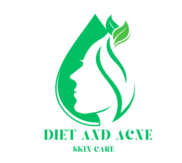
Hi, this is a comment.
To get started with moderating, editing, and deleting comments, please visit the Comments screen in the dashboard.
Commenter avatars come from Gravatar.